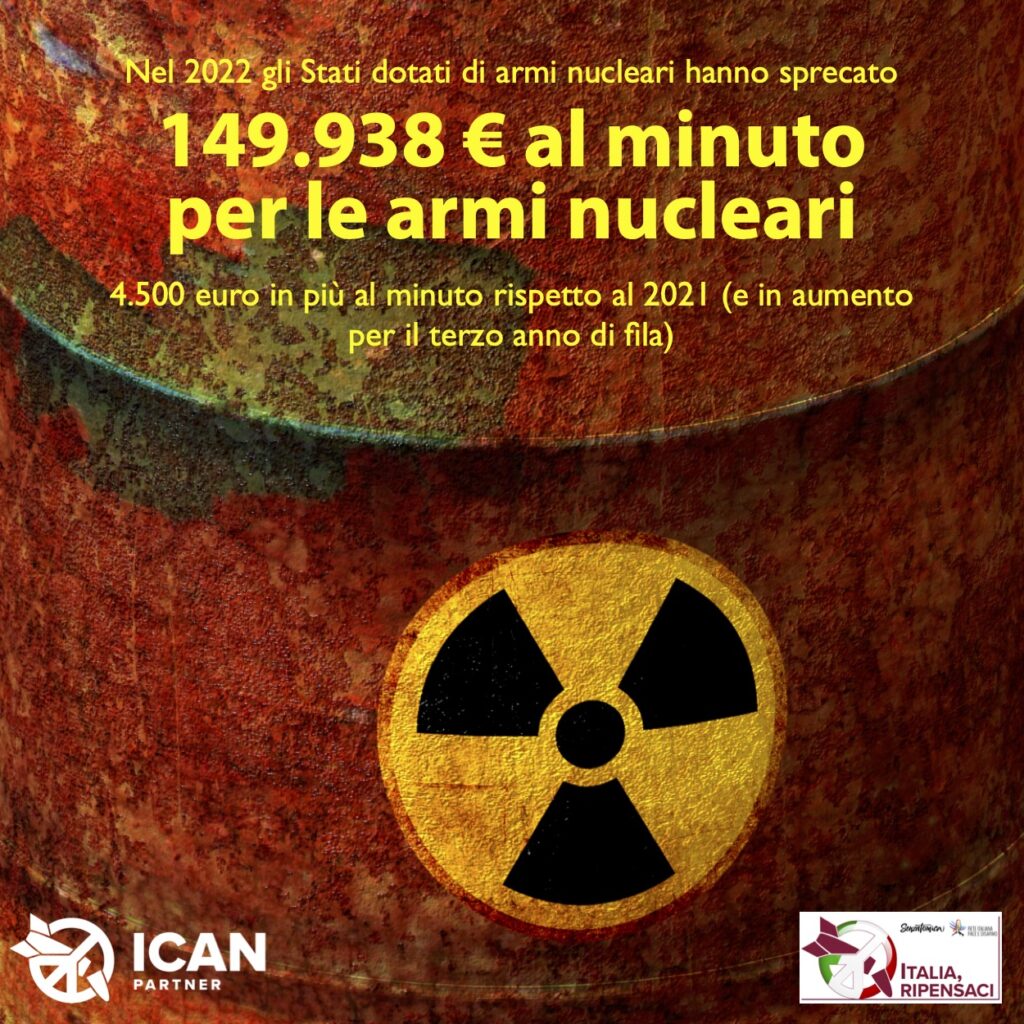In 2022, the nuclear-weapon states (the U.S., China, Russia, Britain, France, Israel, India, Pakistan, and North Korea) spent five thousand dollars more per minute (or about 4 500 euros) on their nuclear arsenals than in the previous year. In total, this is an expenditure of $157 664 (149 938 euros) per minute on nuclear weapons. These nine countries totaled a military expenditure related to nuclear arsenals of $82.9 billion (78.84 billion euros) in 2022, with a gain for the private sector of at least $29 billion (27.57 billion euros).
The United States spent more than all other nuclear-weapon countries combined, with $43.7 billion (41.55 billion euros). Russia spent 22 percent of what the United States spent, with $9.6 billion (9.12 billion euros), and China spent just over a quarter of the U.S. total, with $11.7 billion (11.12 billion euros).
There are at least $278.6 billion in outstanding nuclear weapons contracts, some of which will not expire for decades. At least $15.9 billion (€15.12 billion) of new nuclear weapons contracts were awarded in 2022. The companies that received them have invested in lobbying their governments, spending $113 million on these initiatives in the United States and France. Together, nuclear weapons companies, nuclear-armed governments, and governments that are members of nuclear alliances spent $21 million to $36 million to fund the ten largest think tanks that research and write about nuclear weapons in nuclear-armed states. The data are the result of research conducted by ICAN (International Campaign to Abolish Nuclear Weapons, Nobel Peace Prize 2017) on the global cost of nuclear arsenals, which can be downloaded in full at this link.
Russia’s invasion of Ukraine and overt threats to use nuclear weapons have raised fear across the planet, but they have also spurred resilience and rethinking of outdated concepts such as nuclear deterrence.
Those whose income depends on the existence of nuclear weapons have strenuously defended the “right” of nine countries to indiscriminately kill civilians with weapons of mass destruction, but the majority of public opinion is going in another direction.
In June 2022, more than sixty states parties to the Treaty on the Prohibition of Nuclear Weapons gathered in Vienna. In an incredibly inclusive meeting, they engaged with those impacted by decades of nuclear weapons production and development, with the young people destined to inherit the contaminating nuclear legacy, and with the financiers who know that it is possible to find power and profit by avoiding the nuclear industry. This meeting adopted the most comprehensive and coordinated plan of action on nuclear disarmament in the last decade, and they are well on their way to implementing the agreements.
The nine nuclear-weapon states may have wasted $157 644 per minute on their arsenals in 2022, but regardless of how much they spend, their nuclear weapons remain instruments of terror and intimidation backed by a mythological and abstract concept of deterrence that is rapidly dissolving.
This post is also available in: Italian
